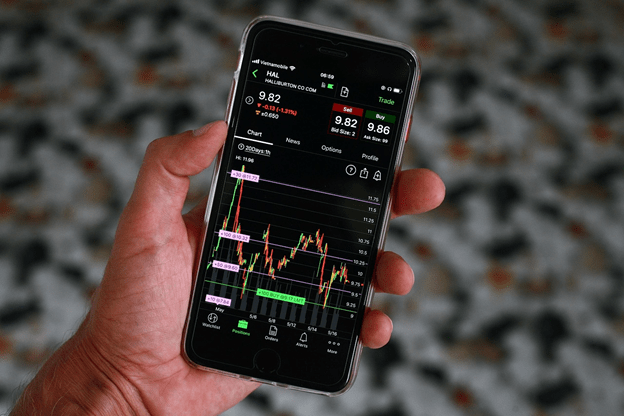Why a Demo Trading Account Is Essential for Building Market Confidence

Every trader starts with a mix of curiosity and hesitation. The financial markets can be intimidating, with charts moving in real time, jargon-heavy analysis, and the ever-present risk of losing money. For beginners, especially, the leap from theory to practice feels daunting. This is exactly why a demo trading account is such an important step.
Instead of risking capital right away, traders can use a demo environment to test strategies, learn how platforms work, and build confidence in their approach. It’s not just for newcomers, either. Experienced traders use demos to test new ideas and sharpen skills without pressure.
What Is a Demo Trading Account?
A demo trading account is a simulated trading environment that mirrors live markets but uses virtual funds. Prices, spreads, and execution speeds are often the same as what you’d see with real money, but gains and losses are purely theoretical.
Think of it as flight simulator training for pilots. You get to practice in realistic conditions without the fear of crashing.
With brokers like ThinkMarkets, demo accounts are free, quick to set up, and give access to the same range of tools that live accounts provide. That means you can practice on platforms like MetaTrader or ThinkTrader without committing capital.
Why Demo Accounts Are So Useful
The main advantage is obvious: no risk to your actual money. But the value runs deeper. Demo trading offers:
- A safe space to learn how order types work (market, limit, stop).
- Hands-on experience with platforms, from charting tools to mobile apps.
- The chance to test strategies in real-time market conditions.
- Confidence-building before stepping into live trading.
Without a demo phase, traders often go straight to live markets, where mistakes can be costly. The demo account provides the necessary buffer.
Building Confidence Step by Step
Market confidence doesn’t come from reading about strategies; it comes from practicing them. A demo allows traders to progress gradually.
- Getting familiar with the platform – Placing mock trades, setting stop-loss orders, or exploring indicators without risk.
- Testing different markets – Trying forex, indices, commodities, or crypto to see which feels comfortable.
- Experimenting with strategies – Swing trading, scalping, or long-term investing can all be practiced.
- Reviewing performance – Analysing what worked and what didn’t, and adjusting accordingly.
The beauty is that mistakes become lessons, not financial setbacks.
The Role of Emotions in Trading
One criticism of demo accounts is that they don’t replicate the emotional impact of losing real money. That’s true, but there’s still plenty of value in learning how trades play out mechanically.
Fear and greed show up in live markets, but without knowing how to execute trades confidently, the emotional side only gets worse. A demo allows you to separate technical skills from psychology. Once those basics feel automatic, you’ll be better prepared to manage emotions in a live environment.
How Long Should You Use a Demo Account?
There’s no universal rule. Some traders spend weeks in demo mode; others practice for months. The key is balance. Stay too short, and you risk entering live trading unprepared. Stay too long, and you risk treating the demo like a game, never making the transition.
A useful guideline is this: move to live trading once you’ve developed a strategy that works consistently in demo conditions and you can explain exactly why you’re placing each trade.
Demo Accounts for Experienced Traders
It’s not just for beginners. Even seasoned traders benefit from keeping a demo account handy.
Testing new strategies
Before risking real funds, traders can run new methods in a simulated environment.
Learning new platforms
Switching brokers or platforms becomes smoother if you practice first.
Exploring new asset classes
A trader focused on forex might use a demo to try indices or crypto without committing capital.
How to Get the Most Out of a Demo
A demo account is only useful if treated seriously. Here’s how traders maximise the benefits:
- Use the same account size you’d trade live. Practicing with $1 million in virtual funds when you’ll later deposit $1,000 doesn’t reflect reality.
- Set real risk parameters. Decide in advance how much you’d risk per trade.
- Keep records. Journaling demo trades helps identify strengths and weaknesses.
- Avoid random clicking. Every trade should be based on a rule, not impulse.
This mindset helps bridge the gap between simulated and live trading.
Common Mistakes with Demo Trading
While demos are powerful learning tools, they aren’t foolproof. Some traders misuse them by:
- Treating demo trades like video game scores, chasing unrealistic wins.
- Ignoring risk management because losses “don’t matter.”
- Switching constantly between strategies without giving one time to prove itself.
The best approach is to trade a demo account exactly how you would trade live. That way, the transition becomes seamless.
The Transition to Live Trading
Eventually, you’ll need to move from demo to live. Here’s how to do it smoothly:
- Start small – Begin with micro or mini lots to reduce pressure.
- Expect emotions – Losses will feel different when real money is involved.
- Stick to the plan – Apply the same strategies that worked in demo.
- Scale gradually – Increase size only after consistent performance.
Many traders keep their demo account open even after going live. It serves as a practice ground for testing ideas before applying them in the market.
Why Brokers Provide Demo Accounts
From a broker’s perspective, demos aren’t just marketing. They’re essential for client education. Brokers emphasise that an informed, confident trader is more likely to succeed and stay active in the markets. A demo account supports that journey by reducing barriers to entry.
Real-World Applications
To see the value of a demo in practice, consider a new trader interested in trading gold. Instead of risking capital on the first attempt, they could:
- Track how gold reacts to U.S. economic releases.
- Test different moving average setups.
- Place simulated buy and sell orders to see how spreads impact profitability.
- Evaluate whether their strategy holds up across volatile sessions.
By the time they go live, they’re not guessing. They’ve seen how the market behaves and know how their platform handles orders.
Why Demo Accounts Remain Relevant in 2025
With AI-driven trading, automated strategies, and ever-faster platforms, some argue that demos are outdated. But the fundamentals of trading haven’t changed: execution, risk control, and discipline still matter. A demo provides the space to learn these skills without financial risk.
Even in advanced markets, traders value demos for testing tools, refining strategies, and training themselves to react calmly to price moves.
Building Market Confidence
Confidence in trading doesn’t come from reading theory alone. It comes from experience, making decisions, managing risk, and seeing results. A demo trading account provides that experience without exposing traders to losses.
Whether you’re just starting or already active in the markets, keeping a demo alongside your live account is one of the simplest ways to practice, refine, and build trust in your approach.
Credible brokers recognise this and provide free demo access to ensure that every trader, beginner or advanced, has a safe environment to learn and grow.
In trading, confidence is everything. And confidence built in a demo account is the first step toward success in live markets.
FAQs
Do demo accounts use real market prices?
Yes. Most brokers stream live or near-live market data to demo accounts, so you’re seeing the same moves you’d see in real trading.
Can I lose real money in a demo account?
No. Demo accounts use virtual funds, so there’s no financial risk.
How long should I practice in a demo?
As long as it takes to develop a consistent strategy. For some, that’s weeks; for others, it might be months.
Are demo and live accounts exactly the same?
Mechanically, they’re very similar. The difference is psychological: real money introduces emotions that demos can’t replicate.
Can experienced traders benefit from demo accounts?
Absolutely. Many use them to test new markets, strategies, or platforms before committing live funds.




